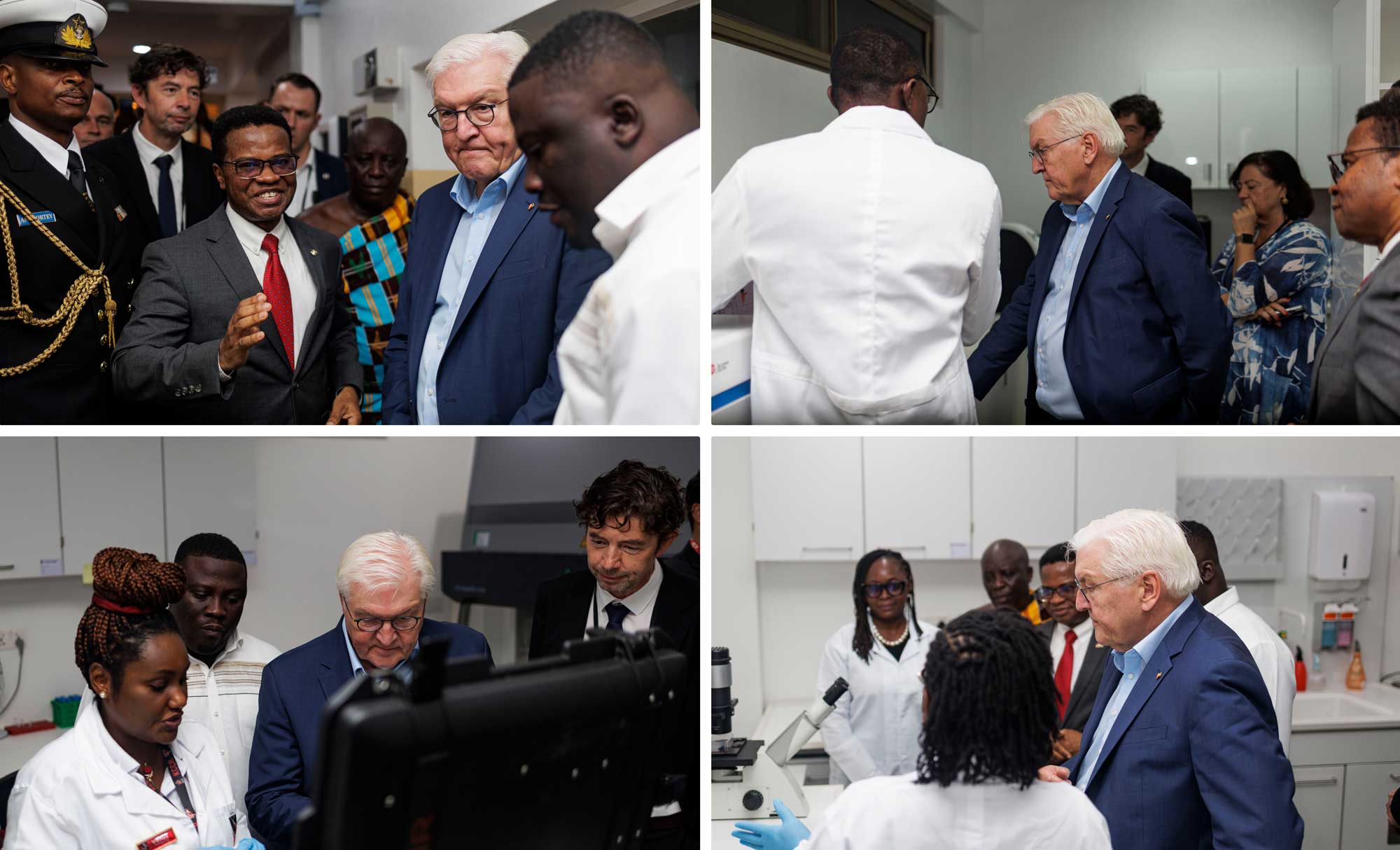President of the Federal Republic of Germany, Frank-Walter Steinmeier, has visited the Kumasi Centre for Collaborative Research in Tropical Medicine (KCCR) at the Kwame Nkrumah University of Science and Technology (KNUST), reaffirming Germany’s commitment to strengthening scientific collaboration with Ghana in vaccine research, innovation, and global health.
The visit, part of President Steinmeier’s three-day tour of Ghana, focused on deepening Ghana–Germany cooperation in vaccine research and development, scientific training, and capacity building. It also highlighted the success of bilateral partnerships that have positioned KCCR as a regional hub for biomedical research and public health innovation.
Accompanied by his delegation, President Steinmeier toured KCCR’s state-of-the-art facilities, inspecting advanced laboratory technologies including biosafety level 3 systems, cell culture units, flow cytometry, and a portable mobile suitcase laboratory.
He also interacted with scientists, graduate students, and researchers who have directly benefited from Ghana–Germany collaboration.
Prof. Richard Phillips, Scientific Director of KCCR, described the visit as deeply significant, reflecting nearly three decades of scientific partnership between Ghana and Germany rooted in shared purpose and mutual trust.
“We are grateful that His Excellency President Steinmeier chose to witness first-hand the impact of our cooperation,” Prof. Phillips said. “His visit affirms our collaborative model and inspires our continued commitment to advancing global health through research and innovation.”
He noted that the President’s interaction with researchers and students underscored the value of sustained international collaboration in tackling tropical diseases and global health challenges.
KCCR is a partner in the GIZ PharmaVax Ghana Programme, co-financed by the European Union (EU) and the German Federal Ministry for Economic Cooperation and Development (BMZ). The initiative supports Ghana’s pharmaceutical sector in advancing local vaccine production and strengthening research capacity.

















